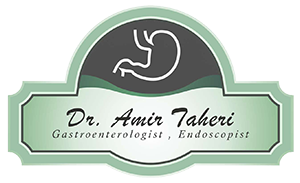Peptic Ulcer Disease
Peptic ulcer disease is the formation of ulcers in the lining of the stomach (gastric ulcer) or the first part of the small intestine, the duodenum (duodenal ulcer).
The most common causes of peptic ulcers are infection with the bacterium Helicobacter pylori (H. pylori) and long-term use of aspirin and nonsteroidal anti-inflammatory drugs (NSAIDs) (Advil, Aleve, others). Stress and spicy foods do not cause peptic ulcers. However, they can make your symptoms worse.
Symptoms of Peptic ulcer
- Burning stomach pain
- Feeling of fullness, bloating or belching
- Fatty food intolerance
- Heartburn
- Nausea

The most common peptic ulcer symptom is burning stomach pain. Stomach acid makes the pain worse, as does having an empty stomach. The pain can often be relieved by eating certain foods that buffer stomach acid or by taking an acid-reducing medication, but then it may come back.
Causes of Peptic ulcer
Peptic ulcers occur when acid in the digestive tract eats away at the inner surface of the stomach or small intestine. The acid can create a painful open sore that may bleed. Common causes are as follows:
- Helicobacter pylori bacteria commonly live in the mucous layer that covers and protects that line the stomach and small intestine. Sometimes this bacterium can cause inflammation of that stomach’s inner layer and producing an ulcer.
- Taking some medications such as aspirin or nonsteroidal anti- inflammatory drugs can irritate or inflame the lining of your stomach and small intestine. Adults who take these pain medications frequently have high risk of peptic ulcer disease.
Factors such as smoking, drinking alcohol, having untreated stress and eating spicy foods increase risk of this problem.
Treatment of peptic ulcer
Treatment for peptic ulcers depends on the cause. Some medications are:
- Antibiotic medications to kill H. pylori. This bacterium is found in your digestive tract, your doctor may recommend a combination of antibiotics to kill the bacterium.
- Medications that blocks acid production and promote healing. Proton pump inhibitors, reduce stomach acid by blocking the action of the parts of cells that produce acid.
- Medications to reduce acid production. Acid blockers also called histamine blockers, reduce the amount of stomach acid released into your digestive tract.
Treatment of peptic ulcer has high rate of success. But if the symptoms to be continued, your doctor may recommend endoscopy to rule out other causes.



